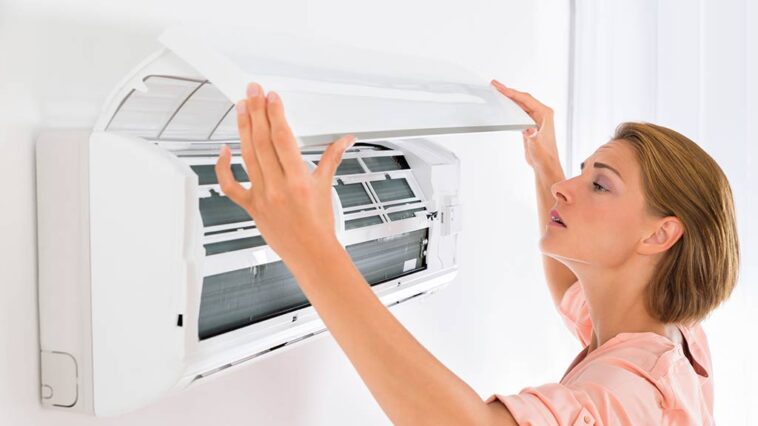Keep reading if you want to learn benefits and tips on how to clean your aircon. Ready? Let’s get started!
How To Clean Your Aircon?
1. Turn off the power
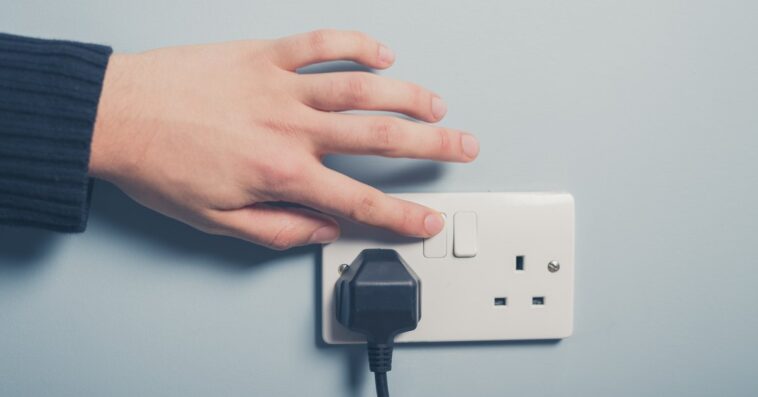
Before you touch your AC unit, turn off the power! You can’t clean if there’s electricity flowing through the system, now, can you? Also, don’t forget to remove ladders and step stools from around the air conditioner – you definitely don’t want any of that stuff slipping and falling on top of it!
2. Inspect Your System
Take a look at your home AC unit. Does it seem like some parts are dirty? If so, continue reading.
Note: This guide assumes that you have an HVAC with a separate cooling device (like a fan) and an evaporator coil which cools down the air before sending it back into the house.
3. Cleaning with Vinegar & Water
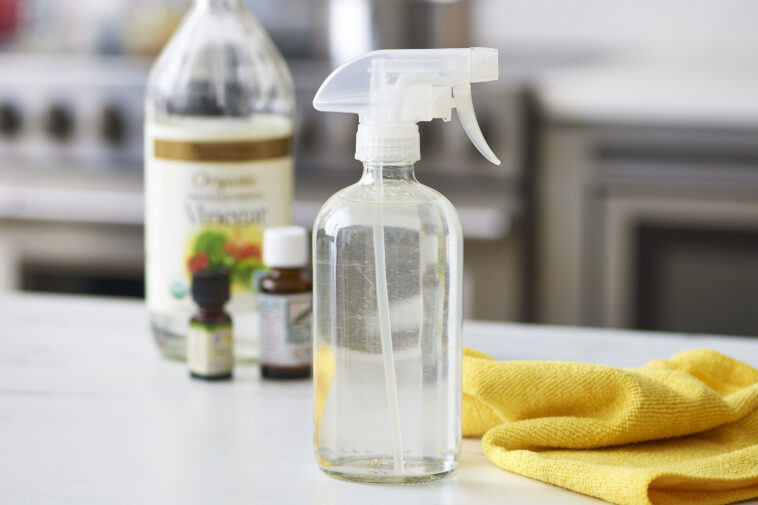
The best way to clean your evaporator coil is with a mixture of water and white vinegar. During the summer months, you probably have a garden hose close by, that’s why we’re going to use it here! You can do this cleaning process no matter what season it is (obviously wait until winter to clean your system if you live in an area where temperatures drop below freezing).
To create this cleaning solution, mix together 3 gallons of lukewarm water and 1 gallon of distilled white vinegar (heat may affect the chemical composition and/or quality of the vinegar, so make sure it’s lukewarm) Then take your garden hose equipped with a spray nozzle and drench the coils with the vinegar mixture. Finally, use your hose to rinse out any leftover dirt/debris stuck on the evaporator coil.
Note: If you’re worried about hurting your AC unit, you can turn off its fan during this process. However, it’s okay if it runs for a little bit while spraying because that will help remove debris more easily! You should always refer to your owner’s manual before attempting any repairs – but if you don’t have your manual handy (or lost it), this is probably how you clean an evaporator coil.
4. Cleaning with Commercial Solutions
If you already know what type of system you have or if vinegar & water isn’t working well enough for you (i.e., you still see some residue stuck on the coils), consider using a commercial solution.
5. Cleaning by Hand
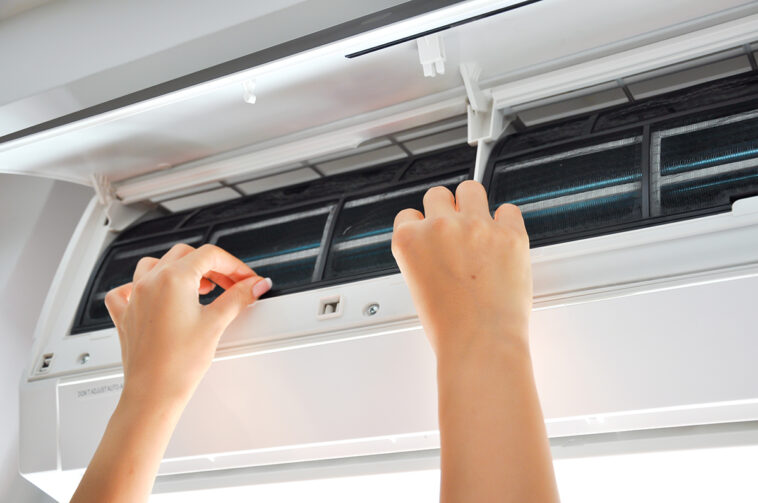
Don’t have access to a garden hose or prefer to manually clean your AC unit? No problem! First, unplug your system and take it outdoors. Then, use steel wool pads with water and dish soap to shine up some of the dirtiest parts.
Note: Be sure not to let any sharp edges come into contact with the evaporator coil inside the inside of the air conditioner unit itself; this could cause serious damage! As always, refer to your owner’s manual for further instructions before attempting any repairs yourself on air conditioners.
6. Add some protection (optional)
After using vinegar or commercial solutions to clean your evaporator coil, it’s best to protect the unit with some sort of sealant. This will prevent future dirt and debris from entering inside of your air conditioner – which in turn will make it easier for you to clean next time! You can purchase an aftermarket sealant spray, just be careful not to use anything that could damage the coils themselves!
7. Clean out your filter & get more airflow
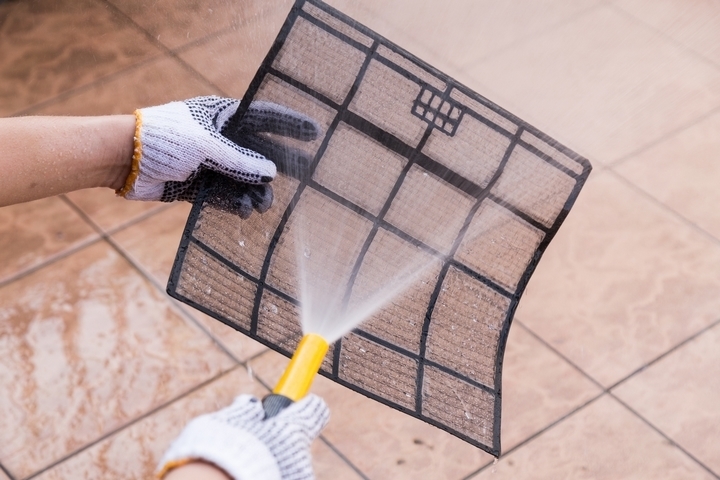
Bacteria build-up isn’t just bad for your AC unit; it’s also bad for your health! If you haven’t already, make sure to clean the filter inside of your air conditioner unit. Then, try to maximize airflow from outside by removing any leaves from around the exterior vents/grilles.
8. Replace the Filter
If your air conditioner is a ductless or window type, you might want to consider replacing the filter every 2-3 months. This will make sure that enough airflow stays moving through your system and keep it from being blocked up by grime from outside.
You can also hire professional companies like airconservicing.org for aircon services.
9. Keep cool & save some money!
Lastly, if you’re not in an intense heatwave or season change yet, wait until summertime to do this cleaning process. Why? Because when AC systems aren’t in use, they release their collected moisture inside of them back into the air which ends up causing humidity levels in your house to spike! But hopefully these tips will help you in keeping your AC unit clean and efficient.
Here are some benefits of maintaining your aircon:
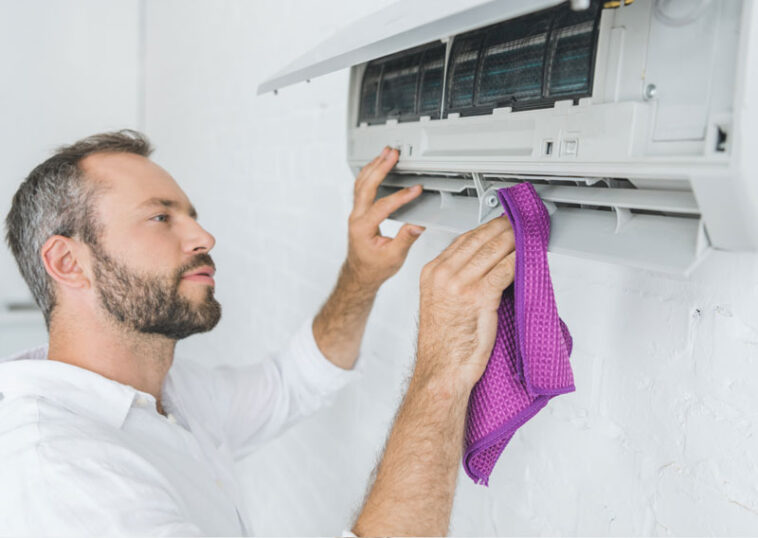
- Keeps the air in your home healthier by eliminating dust and other impurities from entering through filters for your HVAC system that are checked regularly.
- Ensures that you get enough cool air when using your air conditioning, preventing it from getting too hot and running constantly which uses a lot of energy and wastes money.
- Helps to keep humidity levels regulated in your home so they don’t get too high putting strain on your family’s respiratory systems and making them feel uncomfortable due to the heat or cold depending on the season.
- Prevents expensive repairs and breakdowns in heating equipment by performing regular maintenance and inspections of equipment and parts when needed instead of waiting for issues to occur before having them looked at.
- Keeps your family safe by reducing the risk of electrical hazards in an easily accessible HVAC unit that is being serviced regularly being replaced or repaired instead of just being ignored when something begins to go wrong with it.
- Prevents overheating of your home in extreme weather conditions which can be dangerous for anyone inside especially small children, seniors, and pets if you are away from home or sleeping during this time period.
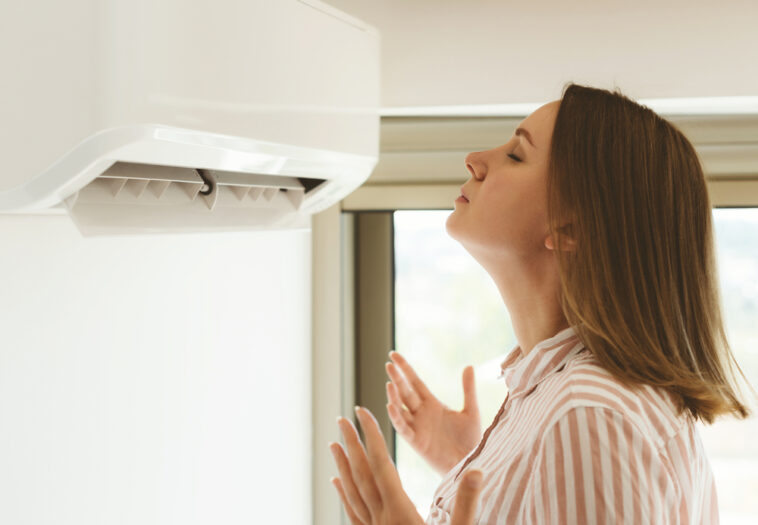
Source: hhaircon.com.au - Keeps your system performing at its highest level so equipment does not have to work harder than necessary in order to heat or cool a space putting excess wear and tear on parts which can lead to more expensive repairs later on down the road when maintained regularly instead of left unattended until problems arise.
- Helps you to save money over time by extending the life span of your HVAC system by taking care of potential issues before they begin instead of allowing them to pile up until costly repairs need to be made which can add up to hundreds even thousands of dollars in repair costs that could have been avoided if addressed when a problem was first noticed.
- Prevents air quality from decreasing inside your home while preventing dangerous gasses from entering into it as well by checking filters regularly and having central air conditioning units serviced annually depending on how often you use them and what kind so problems don’t become worse than they absolutely need to be.
- Extends the lifespan of equipment such as compressors, evaporators, condensers, blowers, and more by preventing corrosion from forming on them which can lead to expensive repairs down the road when left unattended.



